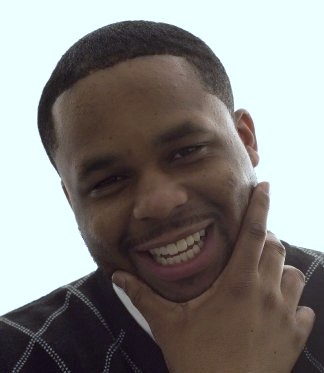
Healing the Black Community one Man
At a Time
By Brandon Jones
The 2011Community Empowerment
Through Black Men Healing Conference kicked off on June 23rd and June 24th at Metropolitan State University. Not attending
this conference would have been a mistake. This was the third year of the annual conference. The mission of the conferences
are to offer an alternative way of thinking about community building by addressing intergenerational pain and trauma that
act as barriers to healing, collaboration, sustainable change and community empowerment. The focus of this year’s conference
was on Wellness and Accountability. The
conference was filled with community members, social workers, educators, law enforcement, students, community organizers,
and social service professionals from multiple cultural backgrounds. The Community
Empowerment Through Black Men Healing Conference was an epic event for anyone who lives, raises, socializes, and works
with black males. In turn, this conference was for everyone!
Day one of the conference
was highlighted by an intriguing introduction to how the conference was created by co-founder Sam Simmons. Mr. Simmons inspiring
speech on why the topic of Black Male Healing is important for community development
in the black community set the tone for the conference. Simmons believes trauma is a key factor in the state of the black
community. The answer to this trauma Simmons’ believes is stress management. The speech was then followed by a panel
discussion that included Dr. Rose Brewer of the University of Minnesota, Dr. Oliver Williams of the University of Minnesota,
Dr. Mark Harden of Bethel College, Professor Nekima Levy-Pounds, and Charles Helm of the University of Minnesota. The discussion
highlighted black men’s role in the family, community, society, and the world.
The idea of healing black males as a form of community development
is something that has been seen as a rebellious concept. Simply, because is causes some discomfort in many social circles.
Simmons explains why the idea of black male healing is such an edgy topic stating, “Change does not come without making
people uncomfortable.” The black community is faced with multiple disparities
that have left the community disenfranchised in many forms. These disparities include and are not limited to poverty, illiteracy,
racial disparities, violence and massive incarceration. These issues have contributed to the barriers that have prevented
black people from maximizing their potential and may undermine decades of racial and social progress.
There are five main points of African American trauma that
is linked to the disparities African Americans face today, Chattel Slavery, Jim Crow,
Ghetto, Ghetto and Welfare, and Hyperghetto. Chattel Slavery was during the
years 1619 to 1865. This is when Africans were forced into slavery in what became America and treated as property. After slavery
was abolished, Jim Crow was institutionalized in America from 1865 to 1965. During
Jim Crow blacks were no longer property. Blacks were seen as second class citizens and many times less than human. Blacks
were terrorized by state sponsored policies and groups such as the Klu Klux Klan. Ghettos
started to form in result of the industrial manufacturing in Northern United States from 1915 to 1968. With this migration
came racial segregation. In 1968, the ideologies of welfare were implemented. If families wanted assistance from the government
the man had to be out of the home. These practices continue to today. From 1975 until present day, Hypreghettos developed with the “War on Drugs” and the Prison Industrial Complex emerging. Black families
have deteriorated and black men are imprisoned at significant rates. The five points of African American trauma have never
given the black community time to heal. When does the suffering stop?
Day two of the conference was filled with workshops that dealt
with faith based perspectives on healing in the Black community, Fatherhood in the
black family, black manhood, identity formation of black males, PTSD and Depression effects on the Somali community. Day
two was capped off marvelous speech by Dr. William Oliver, professor of Criminal Justice Indiana University. Dr. Oliver’s
focus was on how trauma effects the black community and how black men interact within community. Trauma from slavery, Jim
Crow, and the “War on Drugs” has been link to the social disparities of the black community. Dr. Oliver focused
on how healing the trauma from these events may indeed healing the social ills that have effected the black community for
many years.
Black males have a significant role in the black community.
Whether their role is father, brother, uncle, cousin, friend, coach, teacher, preacher, neighbor, or owner, black men bring
a significance affect to the black community. The affect of black males can be a positive or negative impact, either way black
males play a part in the paradigm of the black community. The Community Empowerment
Through Black Men Healing Conference maybe seen as a rebellious or edgy event that looks at alternative ways to healing
and developing the black community. However in the words of Sam Simmons, “Some change is just about being
brave enough to get out of the box.”
|

